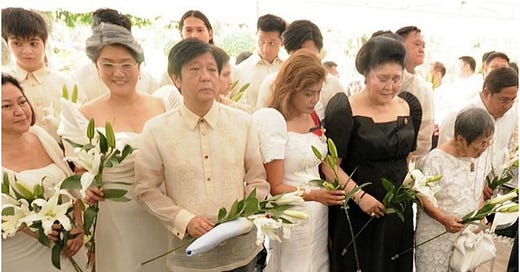Although Philippine President Rodrigo Duterte last week signed what has been called the most significant foreign investment liberalization since the country gained independence in 1946, the question is what comes next, given the possible return of the Marcos family to power in elections scheduled for May 9 and the family’s previous rapacious theft of bo…
Keep reading with a 7-day free trial
Subscribe to Asia Sentinel to keep reading this post and get 7 days of free access to the full post archives.




